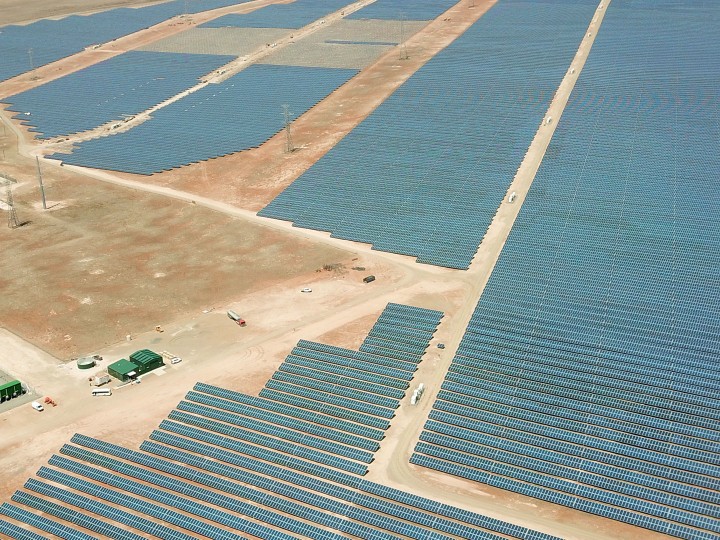The 95 MW Tailem Bend Solar Farm in South Australia has been granted approval for self-forecast generation by the Australian Energy Market Operator (AEMO), making it the first project of this kind to switch to this technology. The project’s developer, Singapore-based Vena Energy, said on Monday that the approval came after an eight-week assessment period.
“Self-forecasting has the potential to garner significant benefits to the wider management and operation of the market and renewable industry,” said Anil Nangia, Managing Director, Vena Energy Australia. “This includes greater industry capability and responsibility to the communities being serviced by renewable generation, improved system security and stability, reduced Frequency Control Ancillary Services (FCAS) costs of the generators, and more efficient market outcomes”.
The developer engaged a forecasting provider Proa Analytics to install the necessary hardware and software, including on-site equipment such as sky cameras and pyranometers. The installation was completed by mid-June, and Proa Analytics was able to start submitting generation forecasts on behalf of Vena Energy for the Tailem Bend Solar Project in July.
“We believe that self-forecasting for renewable generation is a significant step forward for the Australian energy industry and are delighted that Tailem Bend Solar Project is the first to achieve this milestone,” Proa Analytics Managing Director Matthew Jeppesen said.
Providing forecasts of solar generation from five minutes up to seven days ahead, Proa Analytics has been announced as one of the funding recipients under a $9.4 million trial run by the Australian Renewable Energy Agency (ARENA) in partnership with AEMO. The trials will provide test cases for at least 45% of registered wind and solar capacity in the NEM to do their own five-minute forecasts just as traditional power plants do with the goal to improve the accuracy of market outcomes.
UniSA Professor of Environmental Mathematics John Boland said earlier inaccurate short-term forecasts relating to wind and solar generation have cost Australia’s renewable energy sector about $5 million in the past decade. He said precise self-forecasting would also help solar farms with battery storage capabilities predict when best to sell or store their electricity.
“Clouds can move and form very quickly, creating complex atmospheric layers which often move in different directions. The existing forecasting systems for wind and solar are designed for longer-term time frames and have led to multiple issues over the years,” Boland said. “This highlights the need for reliable short-term forecasts to provide confidence to both renewable generators and the entire industry.”
Addition of a grid-scale battery as well as building another stage of the Tailem Bend Solar Farm similar in size is on the cards for Vena Energy. One of the two operational big PV projects in Southern Australia, the other one being the 220 MW Bungama Solar Farm, the Tailem Bend Solar Project was switched on in April and officially opened in May
Construction commenced last April and saw more than 390,000 Jinko solar panels and 54 Schneider inverters installed on site. UGL was awarded contracts to build and maintain the project. The project is capable of generating 200 GWh of renewable energy per year, which is able to meet the annual electricity demands of up to 40,000 homes.
The $200 million project reached financial close last February, having signed a 22-year offtake agreement for 100% of its output with Snowy Hydro. Tailem Bend was the first solar project that the government-owned energy provider contracted with based on a contract which included a clause requiring the project to switch off at times of negative prices.
This content is protected by copyright and may not be reused. If you want to cooperate with us and would like to reuse some of our content, please contact: editors@pv-magazine.com.









2 comments
By submitting this form you agree to pv magazine using your data for the purposes of publishing your comment.
Your personal data will only be disclosed or otherwise transmitted to third parties for the purposes of spam filtering or if this is necessary for technical maintenance of the website. Any other transfer to third parties will not take place unless this is justified on the basis of applicable data protection regulations or if pv magazine is legally obliged to do so.
You may revoke this consent at any time with effect for the future, in which case your personal data will be deleted immediately. Otherwise, your data will be deleted if pv magazine has processed your request or the purpose of data storage is fulfilled.
Further information on data privacy can be found in our Data Protection Policy.